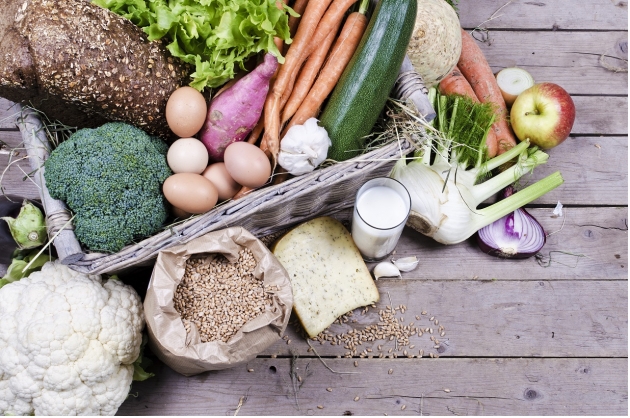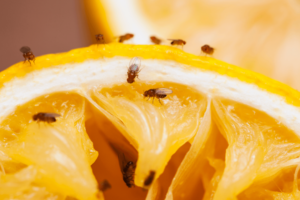Food waste is a serious problem in Australia. So World Food Day (16th October) provides the perfect opportunity to start reducing the amount of food we throw away. Helpling is on hand to bring you some tips on reducing food wastage in the home. Scroll through the infographic, or jump to the tips.
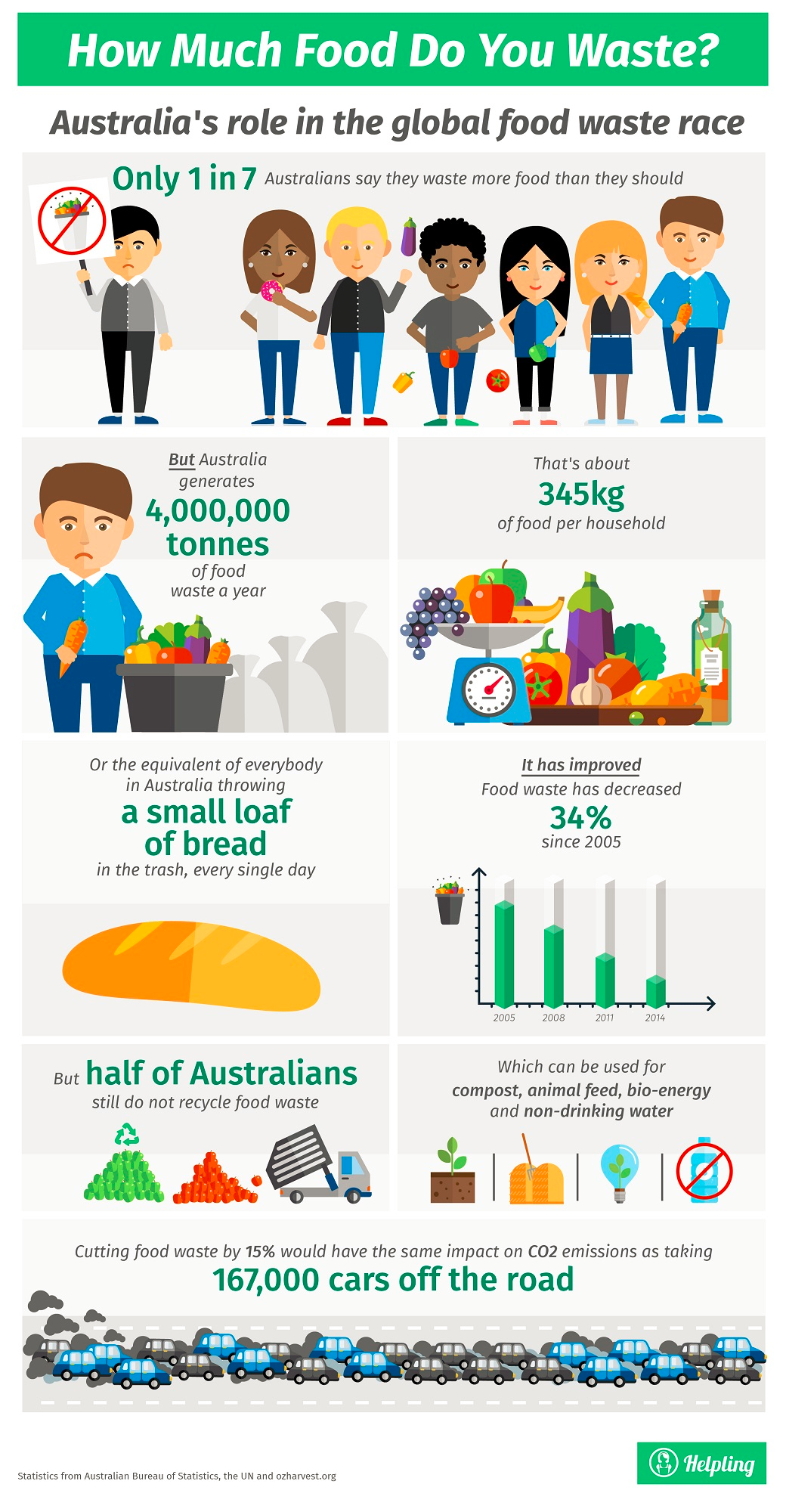
How much food do we waste in Australia?
In Australia we love food, but for a nation of food lovers, the amount we waste is quite alarming. Last year alone, this amounted to each one of us throwing away a loaf of bread, every single day. This adds up to a whopping 4,000,000 tonnes of food (or 345kg each).
This is actually a big improvement. Since 2005, the annual wastage of food in Australia has fallen from over 6,000,000 tonnes, a drop of 34% in just 10 years.
Only 1 in 7 Australians admit to wasting more food than they should, and less than half of households actually recycle food waste. Recycled food can be used for compost, animal feed, bio-energy and non-drinking water.
Food waste is also very harmful to the environment. The carbon footprint of wasted food in Australia is equivalent to that of over 1,000,000 cars.
The National Environment Agency has estimated that approximately half of all wasted food is produced by households, which fortunately means that we can all do our part to make a difference by changing the way we buy, eat and dispose of food. Here is a list of some useful tips and tricks to cut down food waste in the home, and save some money in the long run.
6 ways you can reduce food waste at home
1. Donate to a food bank
If you have non-perishable food that’s been hiding at the back of the cupboard or pantry for a while (but is still in date), take it to a food bank. Food banks rely on donations to provide meals for people who need support.
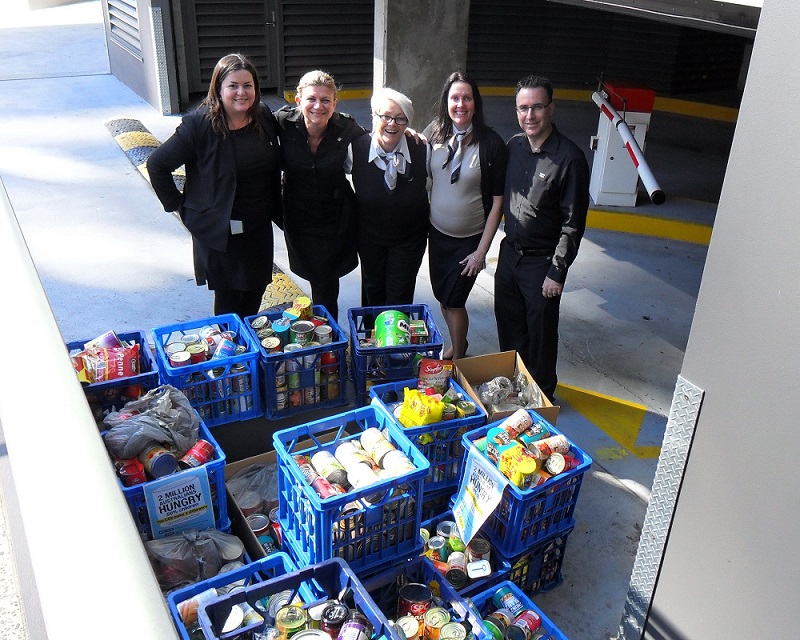
Foodbank (pictured above), Australia’s largest hunger relief program, provides millions of meals a year to people in need. They have a presence in every state, so head to www.foodbank.org.au to find out how you can donate.
2. Shop smart

Buy less food. Simple, right?
But really, this is one of the most important things you can do. Many foods we buy in the supermarket will spoil and be thrown away before being eaten. Even if it’s just a small amount each time, this quickly adds up. Try buying less food at more regular intervals. This will help you gauge how much food you really need each time you go out and will prevent you from throwing some products away. The best thing to do is make a list and stick to it. Ignore all those offers on products with fast approaching expiry dates – you don’t need them and they will surely go off very quickly.
3. Work with what you’ve got

Keep an eye on the expiry dates of your products, especially those that are in the next few days. Prepare meals with these first. This will stop you from wasting them and can also make for some entertaining recipes, as you try to combine foods that you wouldn’t normally put together. Keep in mind that some products are still good after their expiry date, so be sensible being throwing something away, just because it expired the day before.
Staple foods like bread are most likely to be discarded. However, bread is a versatile food and can be used in a variety of soups, cakes, meatballs, crumbles and bread crumbs for coating meat.
When you make a big meal, save any leftover food. It can be your lunch for the next day, or simply a snack for when you get hungry. Try one of these recipes from food blog Sprinkles and Sprouts on cooking with leftovers.
4. Store food properly
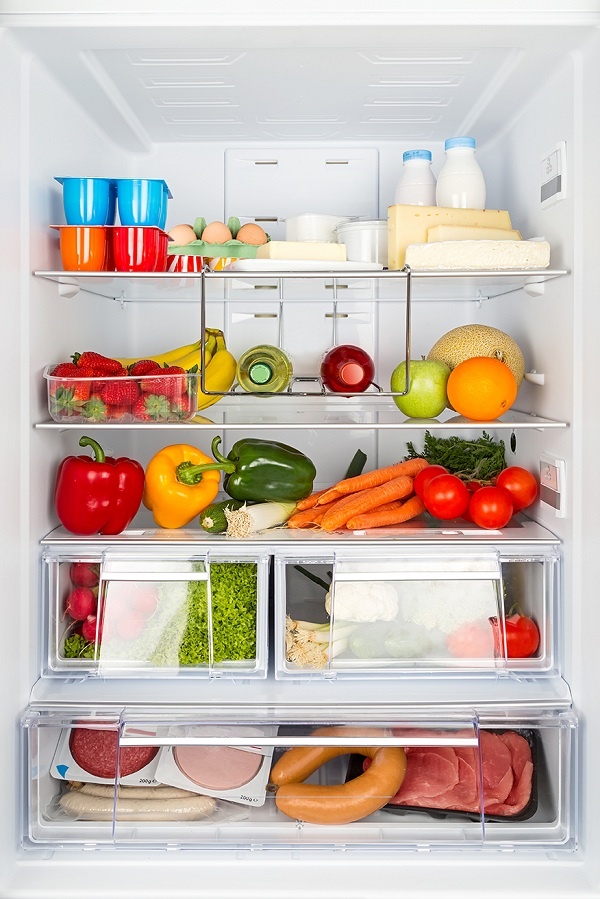
Storing food appropriately can have a significant impact on its longevity. Obviously, the better the storage, the longer the food will last and the less you end up throwing in the bin. Storage containers, like tupperware, jars and sandwich bags can help to preserve the food you have.
A dirty fridge is a breeding ground for bacteria. Keep your fridge clean and hygienic, and at the right temperature (ideally around 4 degrees Celsius) to keep your food fresher for longer. Get into the habit of rotating your foods in the fridge each time you shop. Bring items from the back towards the front, as these will have the soonest use-by-dates. This prevents any foods from being forgotten and going off at the back of the fridge.
5. Serve sensible portions

When we eat out at restaurants, it’s normal to get too much food. This has begun to affect our meals at home. Try to avoid over-serving food when preparing meals for friends and family by serving smaller portions at first, then serving seconds to those who are still hungry. You might also try serving food on smaller plates – the smaller plate makes the food seem like a larger amount, making us eat less.
6. Reuse, recycle
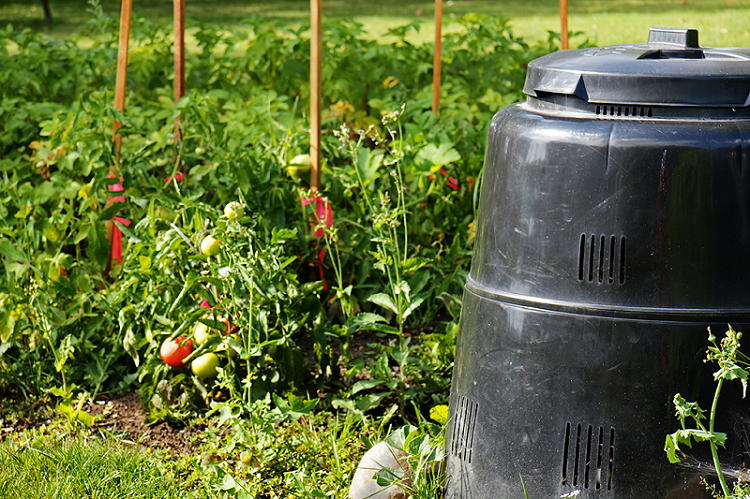
Many items that you might just toss in the bin once you’ve used them still have life left in them. For example, used coffee grounds can be used for cleaning before being thrown in the trash.
Composting is a natural way to recycle food that would otherwise be thrown away. It is simple to do in your own garden and can have a great impact on reducing your waste. Check out this simple how-to guide on composting from Eartheasy.
If you have any tips you’d like to share, add them to the comments. We’d love to hear how you reduce waste in the home.
